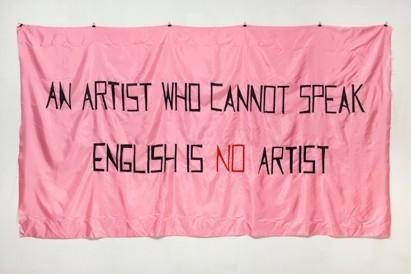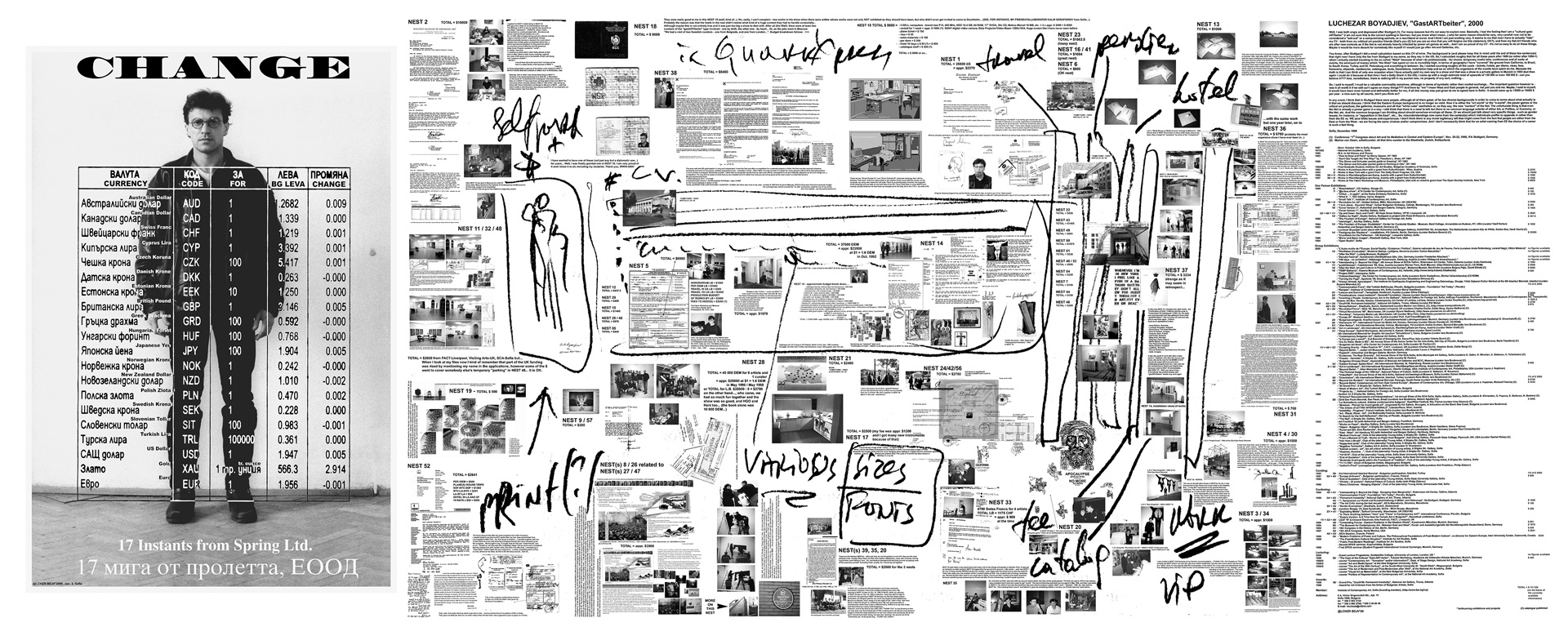“AN ARTIST WHO DOES NOT SPEAK ENGLISH IS NOT AN ARTIST”
HAPPENINGText: Mark Griffith
Commercial globalisation is a key phrase among social activists and anarchists, especially now that commercial air-transport enables campaigners to move from continent to continent to protest at international-trade meetings they once could not have got to.
An art show on until July 28th at Budapest’s Knoll Gallery is not ostensibly about globalisation. But it is hard not to see some influence from the ideas of the new internationalism, an internationalism which believes in the free trade of ideas but fears the free trade of goods and services.

Mladen Stilinović, An Artist Who Cannot Speak English Is No Artist, 1992 © Mladen Stilinović
The show is sarcastically titled “An artist who does not speak English is not an artist”, named after one of the exhibits – a banner by Croat artist Malden Stilinović with something very close to that slogan emblazoned across it – in English of course: a true piece of self-questioning conceptual art if ever I saw one.
In the exhibition a group of artists from mainly ex-communist countries have each contributed a powerful and thoughtful piece about languages, foreignness and internationalism. What does national identity mean, and what is the international language of art? Is it English? Or is it English plus certain other cosmopolitan assumptions shared by art curators, artists and art buyers worldwide?
Already in Eastern Germany, future showings for the exhibition are planned for Tallin, Estonia, and Prague, the Czech Republic.

Luchezar Boyadjiev, GastARTbeiter, 1998-2000, Digital print on vinyl, 210 x 510 cm, Ed. 5 © Luchezar Boyadjiev
Luchazar Boyadijev from Bulgaria mounts a wall-sized black-and-white set of photographs and photocopies of letters and permits, documenting years of travel between various art galleries, installations and art-study internships. He himself stands lifesize at one end, looking rather forlorn, behind a grid of Bulgarian currency exchange rates superimposed on his photo.
Kai Kaljo from Estonia made a video in which people who cannot understand each other’s languages (Estonians talking to Russians, Russians talking to Italians) have to relate to each other a story – a truly extreme version of the game known as Chinese Whispers among English children.
Muscovite and Viennese provocateur duo Alexander Brener and Barbara Schurz contribute a series of lively drawings in which slogans criticising English as the language of the international system, and yet extolling English as the language needed for organising global solidarity against that system, are drawn in brightly-coloured crayon.
Read more ...





